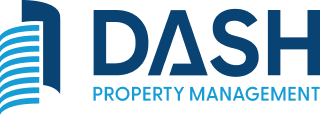Owning a property in Canada can be extremely profitable for foreign investors but you must understand the extensive Canadian tax and immigration laws that apply to real estate investments. Canadian laws can be quite liberal when it comes to owning an investment property. You don’t need to be a Canadian citizen or living in the country but there are many IRCC (Immigration Refugees and Citizenship Canada) compliance requirements and property taxes to be aware of.
More than 150,000 newcomers arrive in Toronto each year, accounting for a huge part in the strength of Toronto’s real estate market. Immigrants usually gravitate to larger cities because of the plentiful amount of employment and study opportunities there. Toronto will continue to accept even more newcomers every year, only allowing the demand for homes to grow. This makes Toronto one of the best places to build wealth with real estate!
Immigration Laws for Real Estate Investors
If you are interested in buying and owning a property in Canada there is no residency or citizenship requirement. You can occupy a Canadian property on a temporary status but you will need to extend your stay or apply for permanent residency if you wish to stay.
There are several ways to apply for Permanent Residency if you are interested in staying in Canada.
- Start-Up Visa Investor Program: This program is made for those who have a business they’re willing to bring to Canada.
- Entrepreneur Program: This program allows foreigners to employ Canadian citizens or permanent residents to prove they are creating employment opportunities in Canada and contributing to the economy.
- Express Entry: This program is a fast track program for Canada PR allowing individuals to bring their family with them to settle in Canada.
- PNP Business Program: Each province in Canada has business or investor programs that cater to real estate investors
How to Get Help Immigrating as a Property Investor in Toronto
Navigating the Canadian immigration system can be difficult with enormous amounts of forms and documents to complete with strict deadlines. There are several Immigration Consultants that will help you step by step through the entire process.
Leasing Process for Foreign Investors
A lease is a document that withholds all of your legal agreements with your tenants. This typically includes:
- Background Checks – Background checks include information such as previous addresses and landlord contact information, employment history, criminal history, details about pets, etc.
- Income Verification – This usually includes first and last month’s rent, proof of employment, a credit check, etc.
- Pet Verification – Owners can refuse to lease to tenants with a pet or a certain type of pet. There are some rules which state that if you own a condo, the rules the condominium has in place overrule the Residential Tenancies Act.
- Rent Increases – In some cases, owners can increase the rent every 12 months by up to a maximum equal to the Consumer Price Index for that year.
- Property Visits – Usually, property owners have the right to access the property to repair or maintain it if they give a 24-hour notice or if there is an emergency.
Investing in real estate in Toronto can be a great way to earn some extra income, but it does take a lot of work and time especially if you are not residing in Canada. We highly recommend you hire a property manager to ensure the process runs smoothly and you don’t encounter any serious problems.
Canadian Real Estate Taxes for Foreign Investors
When purchasing a Canadian investment property there are several tax items to be aware of beforehand.
Property Taxes
When you purchase a property you will pay a provincial transfer tax which can vary depending on which province your property is located in. There are some exemptions if this is your first property purchase in Canada! Depending on the city your property is in there will also be an annual municipal tax which is based on the assessed property value. School and other community taxes are included in this municipal tax.
Federal GST Tax
New home purchases are required to pay the federal Goods and Services Tax (GST) but there is a GST tax rebate available for new or builder-renovated homes!
Use the GST/HST Tax Rebate Calculator to calculate your property rebate money.
Taxes on Rental Properties
Since you’re looking to use your property purchase as an investment there are tax requirements if you decide to rent the property out. The Canadian Income Tax requires 25% of the gross property rental income but non-residents can elect to pay 25% of the net rental income (after expenses). In order to pay the non-resident tax instead of the income tax, the owners must complete the NR6 form.
Learn more about the Non-Resident Tax.
Tax Deductions on Your Toronto Investment Property
There are two main types of deductions for rental income:
- Operating expenses
- Capital expenses
The cost of equipment or furniture for your rental income cannot be deducted against your annual rental income. However, over several years this can be deducted under the Capital Cost Allowance.
Professional Real Estate Investment Help
As you can tell there can be many things to consider when looking to invest in Toronto properties. Hiring a Property Manager and an Immigration Consultant can take the stress away! A property manager will be able to handle all of your tax expenses, tax reductions, rebates, etc as well as find you the perfect investment property while you’re not in Canada! Then hire a Toronto Immigration Lawyer to help you settle in Canada properly by handling all of your immigration documents and requirements.
Investing in a Canadian rental property can be extremely profitable so let us help you achieve those goals by assisting you throughout your investment property process.



